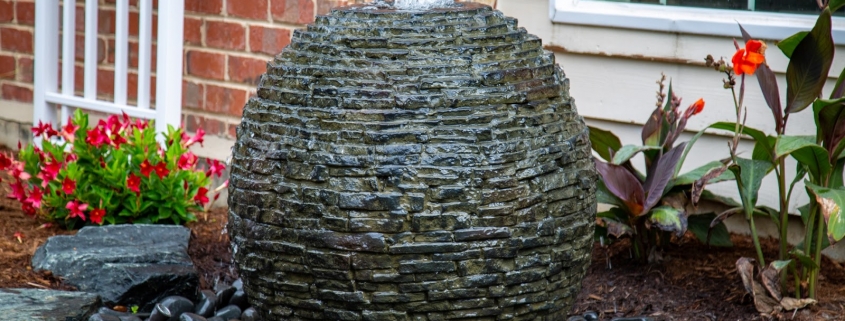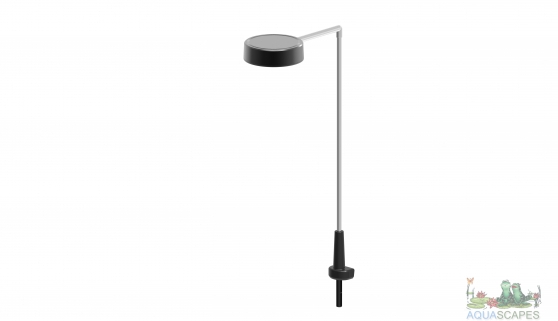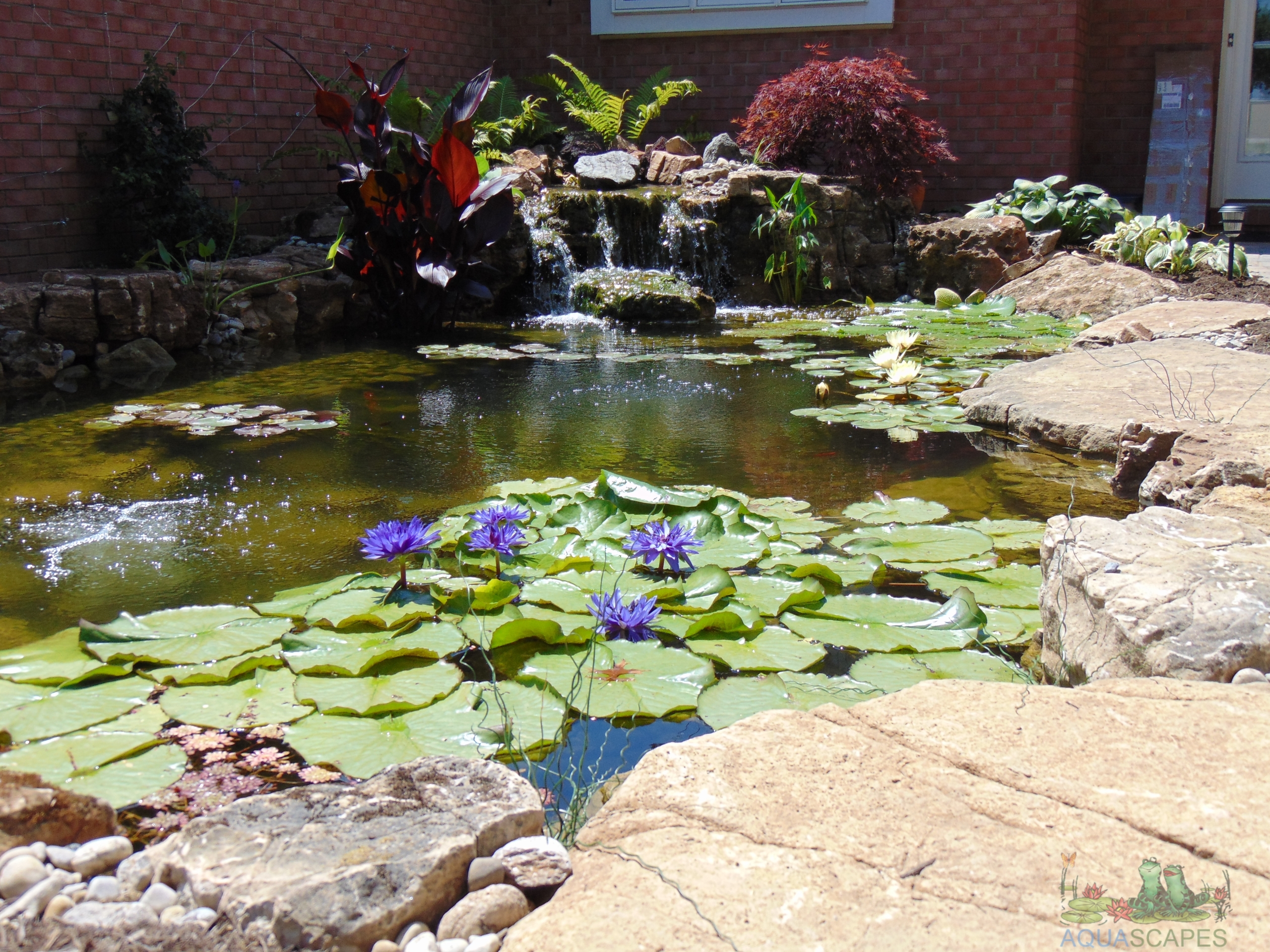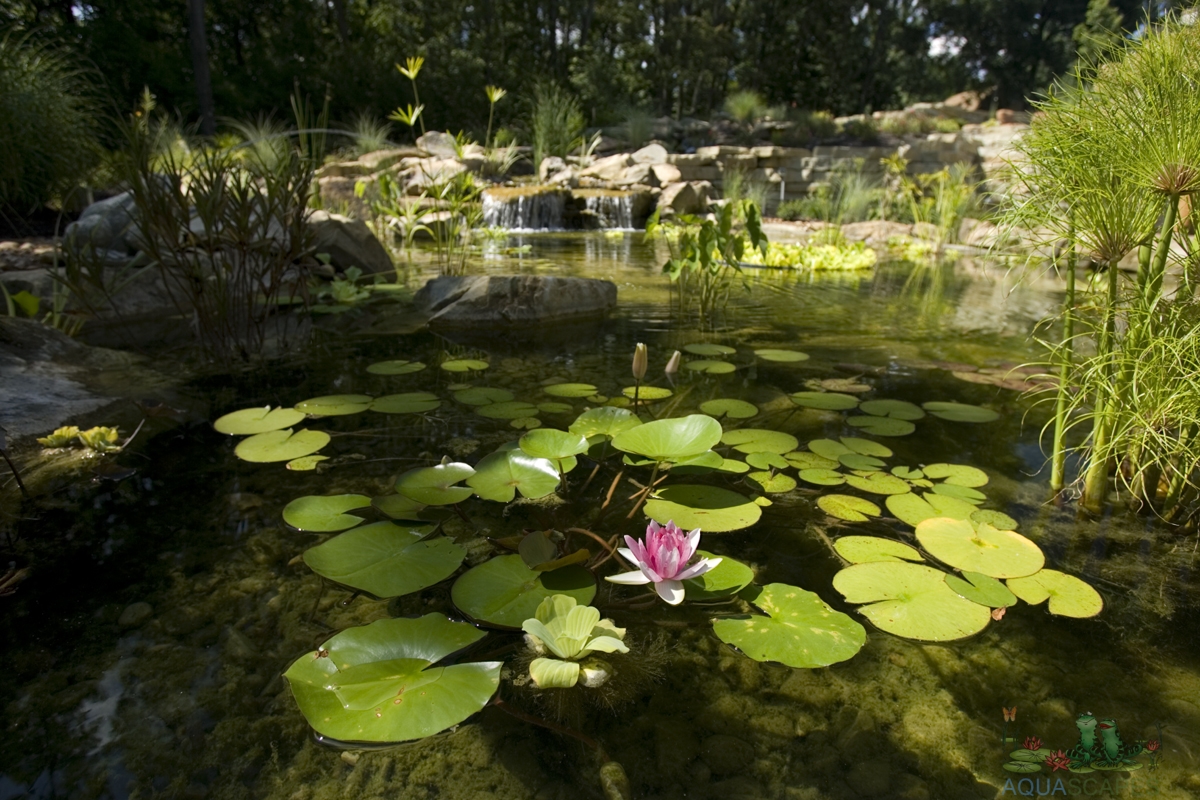How to Shock a Pond Quick How-To Guide
If fish are dying in your pond or if you see lots of algae, it may be time to shock the pond to clean it up. Algae needs oxygen to grow, just as fish and aquatic vegetation do. However, too much algae can rob fish and plants of the oxygen they need. Shocking your pond and getting rid of the harmful algae can restore the clean, clear look to you pond. Because desirable plants and animals live in ponds, owners look for natural enzymes and organic compounds to clear the water. Chlorine should only be used as a last resort.
Remove all dead or decaying plant and animal life from the pond. Algae feeds on the decay process.
Place the correct amount of algaecide in your pond according to manufacturer’s directions. For example, if you have a 120-gallon pond, you would need to use 2 teaspoons of general Algaecide. Each algaecide is different, so read the directions closely.
Let the pond pump aerate and spread the algaecide. If algae is still present after a week, shock the pond again.
Garden Water Features
Water features are a beautiful and relaxing addition to any garden. There are many different types of water features available, from simple bird baths to more elaborate fountains and ponds.
Plant Light 101
Plant lighting is important, I think we can all agree on that! Now, when it comes to lighting, you’re going to want to know a few things before you purchase. When we are talking about lighting, we’re talking about the little light you can place above your indoor or outdoor plants.
All About Aquatic Plants
Aquatic plants and their benefits
Most people are familiar with land plants, but fewer are aware of the wonders of aquatic plants. These fascinating organisms play an important role in freshwater ecosystems, providing food and shelter for fish, amphibians, and invertebrates. In addition, they help to improve water quality by absorbing nutrients and releasing oxygen into the water. Aquatic plants can also be used to beautify ponds and aquariums. Whether you’re a seasoned gardener or a complete novice, planting a few aquatic plants in your tank can add a splash of color and life to your home. So why not give these unique creatures a try? You might be surprised at how much you enjoy watching them grow and thrive.
Some interesting facts about water plants
While most plants rely on the process of photosynthesis to convert sunlight into energy, aquatic plants have evolved to live primarily in water. As a result, they have adapted in a number of ways to survive in their underwater environment. For example, many aquatic plants are able to absorb nutrients directly from the water through their leaves. In addition, plants typically have very strong roots that anchor them to the bottom of a body of water. This allows them to withstand the current and also prevents them from being pulled up by fish or other animals. While they may not be as flashy as some of their land-dwelling counterparts, aquatic plants play an essential role in the ecosystem and are fascinating creatures in their own right.
Different types of aquatic plants
There are three main types of aquatic plants: floating, emergent, and submerged. Floating plants are those that, well, float on the surface of the water. This type of aquatic plant is often used to provide shade and shelter for fish. Emergent plants are those that grow in shallow water with their roots anchored in the mud beneath. Submerged plants are those that grow entirely underwater. This type of aquatic plant is often used to help oxygenate the water. Aquatic plants play an important role in maintaining a healthy ecosystem. They provide food and shelter for fish, help to regulate water temperature, and prevent soil erosion. In short, they’re pretty important!
How to care for aquatic plants
Like all plants, aquatic plants need sunlight and nutrients to grow. However, they have a few unique requirements that must be met in order to thrive. First, it is important to choose the right location for your plants. They should be placed in an area where they will receive at least six hours of sunlight per day. Second, aquatic plants need to be planted in soil that is specifically designed for them. This type of soil is typically sold in pet stores or garden centers. Third, aquatic plants require a consistent water supply. A slowly dripping faucet or an automatic water delivery system can help to ensure that they always have enough water. By following these simple tips, you can keep your aquatic plants healthy and happy for years to come.
Recipes that use plants as ingredients
Nibble on this bit of information: did you know that not only are aquatic plants nutritious, but they’re also delicious? While you may not be used to seeing them as part of your nightly meal, there’s no reason why they can’t make a splash (pun intended) in your kitchen. Here are a few recipes to get you started:
– Watercress and arugula salad with lemon vinaigrette: This light and refreshing salad is perfect for a summer day. The bitterness of the arugula is offset by the sweetness of the watercress, while the lemon vinaigrette ties everything together.
– Seaweed sushi rolls: If you’re looking for a healthier alternative to traditional sushi, give seaweed rolls a try. They’re easy to make and packed with nutrients.
– Pondweed Parmesan: Pondweed is a nutrient-rich aquatic plant that has a similar taste and texture to spinach. It’s delicious when sautéed with garlic and Parmesan cheese.
So go ahead and give aquatic plants a try – your taste buds will thank you!
Now that you know a little bit more about aquatic plants and their benefits, it’s time to get your hands wet! Literally. Why not head down to your local plant nursery and pick up a few of these interesting underwater friends? And if you’re feeling really adventurous, why not try one of the recipes we’ve shared using aquatic plants as ingredients? We guarantee you won’t be disappointed.
Check out our store for all your water gardening needs! Aquascape products are Aquascape Inc. Certified.
Thanks for reading at Meyer Aquascapes! We hope you’ve enjoyed our post on garden pond design. Please leave a comment below if you liked it or have any questions. We’d love to hear from you! Thanks for stopping by!






